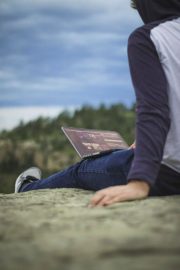We have made an effort to foresee the future and predict the models that will redefine the business over the next two decades.

#1 The Crowd Economy
The world is smaller and tightly connected. The concept of crowdsourcing, crowdfunding, leveraged assets, and people-on-demand thrives on the billions of people united in the digital world.
Example: Airbnb and Uber are great examples of leveraged assets. Whereas TeleMonks, a network of on-demand call agents, is based on the crowd economy model.
#2 The Free/Data Economy
This is a model where we lure the customer with free access to a valuable or entertaining service to gather data that can be leveraged to make money.
Example: Google started by offering a free search service, and with the immensely rich data collected over the years, it has grown to become a superpower. Facebook, YouTube, Twitter, WhatsApp are some of the most significant successes.
#3 The Smartness Economy
We are living in an era where everything is becoming smart. Artificial intelligence is the fuel that is being used to give existing concepts an edge with a layer of smartness. We have witnessed the development of smartphones from cell phones, and cars have gone the distance to go without a driver.
Example: Nuro, a driverless delivery service that brings your goods home.
#4 Closed-Loop Economies
A closed-loop economy is an economic model that is devoid of any waste., as it has no end. Everything is shared, repaired, reused, or recycled. After consumption, the materials are gathered and reprocessed into raw materials that are ready for manufacturing. These systems are gaining popularity with the rise of environmentally-conscious consumers.
Example: The Plastic Bank pays people to accumulate and drop off waste plastic. The waste is then sorted and sold to an appropriate recycler.
#5 Decentralized Autonomous Organizations (DAOs)
AI meets blockchain in the coming decade to create a radically new kind of business model. This model will have no employees, no bosses, and it will be propelled by non-stop production. The company would operate with a set of preprogrammed rules, and computers would take on the task.
Example: DAOstack is working to provide these businesses with tools for success, including reliable crypto-economic incentives and decentralized governance protocols.
#6 Multiple World Models
People will soon have two versions of themselves, the real-world person and the online version. Augmented reality and virtual reality is the reason for the rise of the phenomenon. The digital versions of ourselves Will open up a world of new opportunities for new businesses.
Example: Second Life, the virtual world created in 2003, gave rise to a multimillion-dollar economy of designing digital clothes and digital houses
#7 Transformation Economy
This is where one pays not just for an experience, but for a life that is transformed by this experience.
Example: The fitness company like CrossFit, where you work out in old warehouses, which is not a great experience. But, the transformation is great as you become a better version of yourself.
The business of doing business is changing fast. Developing new technologies and products is not required for success anymore. Instead, it’s about riding on the emerging technologies and innovations to start a disruptive new business model.

